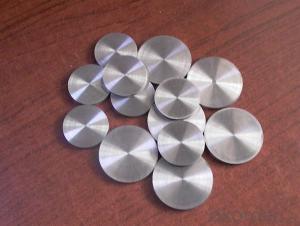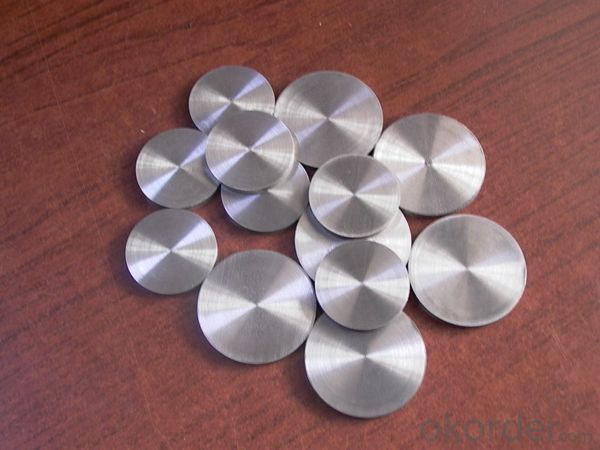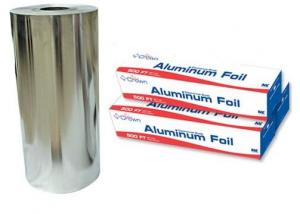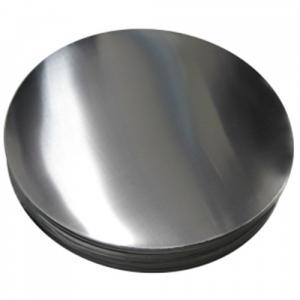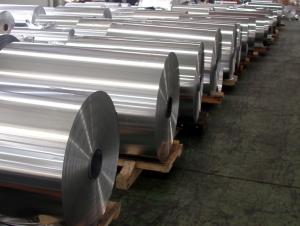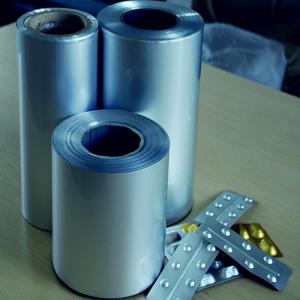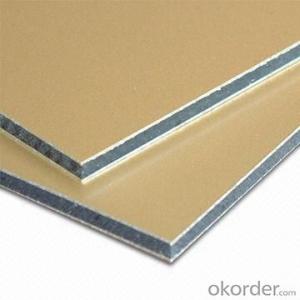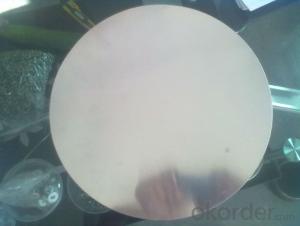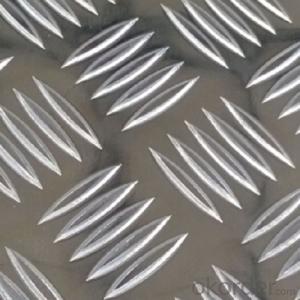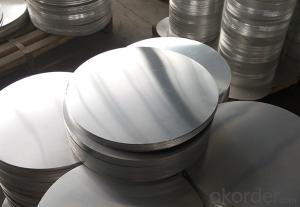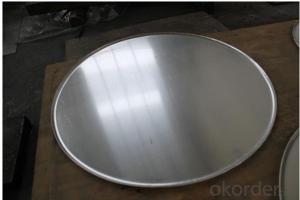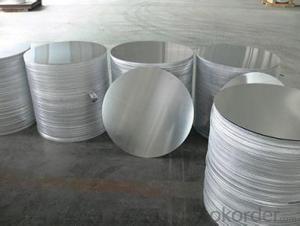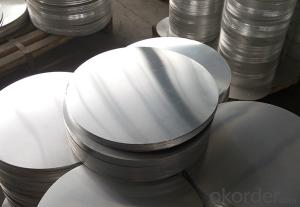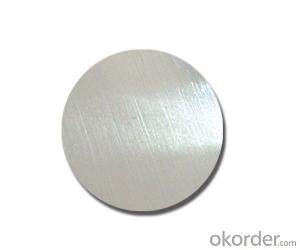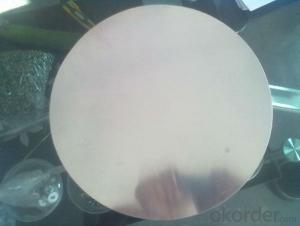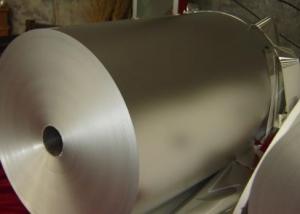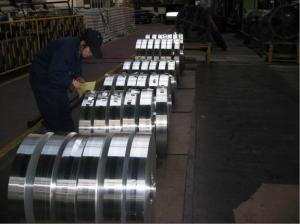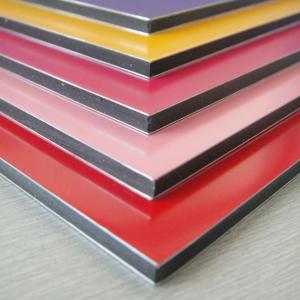Aluminum Hot Rolled Disc for Cookware AA1100 H14
- Loading Port:
- Shanghai
- Payment Terms:
- TT OR LC
- Min Order Qty:
- 5 m.t.
- Supply Capability:
- 1000000 m.t./month
OKorder Service Pledge
OKorder Financial Service
You Might Also Like
Specification
1.Structure of Hot Rolled aluminum disc for cookware Description
• Product: Aluminim Circle
• Application: It is used in cookware, engineering, lighting purpose, fried pans, non-sticky pans, cooking pots, kettles, hard anodize cook wire, pressure cooker and house hold utensils, reflector of the light, etc
• Advantage: Deep drawing and hard anodizing quality Aluminum Circle Sheet can be supplied. Our Aluminum Circle is RoHS and REACH compliance and uses well-protected packing. Our circles are excellent material for producing cookware, utensil, pots, pans and kettles.
2.Main Features of the Hot Rolled aluminum disc for cookware
• High manufacturing accuracy
• Smooth surface
• No waves
• High strength of extension and yield
• Well packaged
3.Hot Rolled aluminum disc for cookware Images
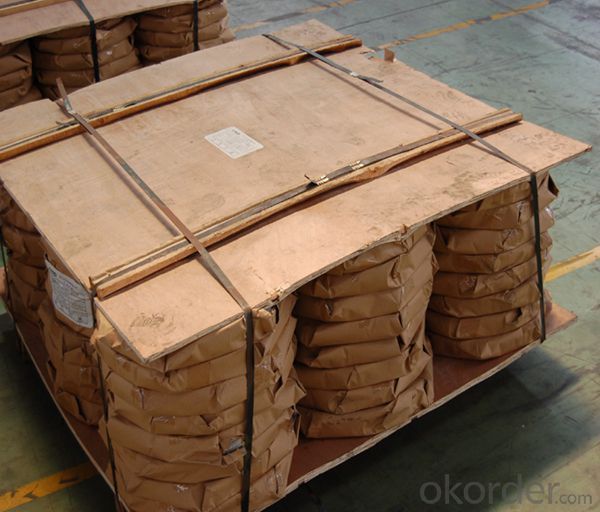
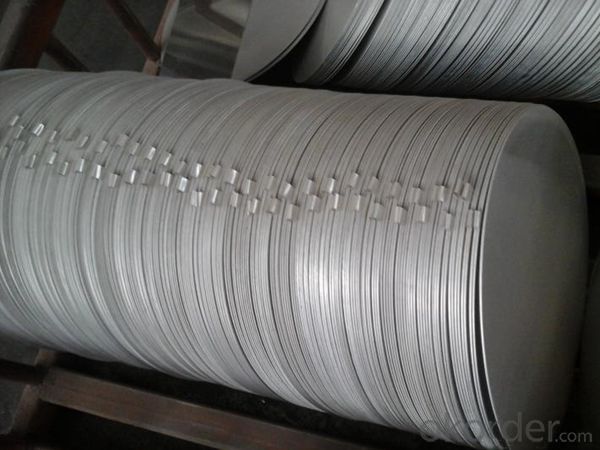
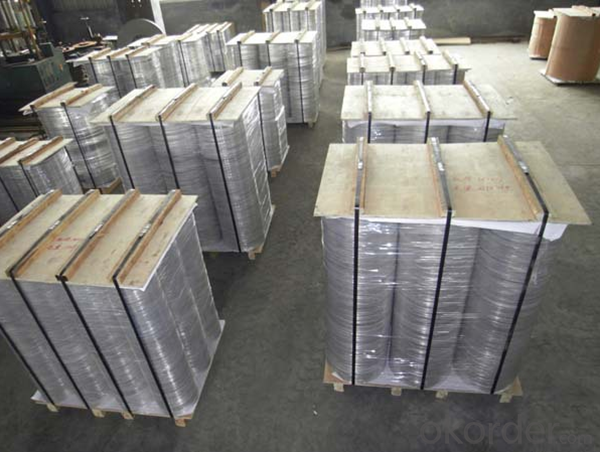
4.Hot Rolled aluminum disc for cookware Specification
Alloy | AA1050,AA1060,AA1100 AA3003etc. |
Temper | O,H14 |
Thickness | 0.5MM-4MM |
Diagonal | 100-1200MM |
Standard | GB/T 3880-2006 |
5.FAQ of Hot Rolled aluminum disc for cookware
We have organized several common questions for our clients,may help you sincerely:
①How about your company?
A world class manufacturer & supplier of aluminum coil and alloy blanks. Aluminum production base is comprised of 18 aluminum annealers, 10 coil and foil mills, 4 continuous production lines, 2 hot rolling production line and 3 prepainted lines.
Export 5000 tons per month to Asia, America and Middle East. Always do the best for our clients.
②Can you guarantee the quality of the products?
We are responsible for the quality of materials to get a long-term cooperation with clients in a reasonable period of time and we are glad to arrange and coordinate any third party inspection for you.
③What is the delivery time after purchase?
35 day after receiving client’s deposit or correct LC
5.Quality contral:
1. Professional Quality Control Team
v Inspecting ingot before melting
v Inspecting aluminium coil stock before cold rolling
v Inspecting finished goods before package
v Inspecting package, loading before shipment
2. Guaranteed by ISO 9001:2008 (SGS)
3. Guaranteed by FDA, EN 602, TPCH etc
- Q: Is it possible to utilize aluminum as a component in battery technology?
- <p>Yes, aluminum can be used in batteries. Aluminum-air batteries are a type of metal-air battery that uses aluminum as the anode. These batteries have a high energy density and are lightweight, making them suitable for certain applications. However, they also have challenges such as the need for a specific electrolyte and issues with aluminum corrosion, which limit their practical use compared to more common battery technologies like lithium-ion batteries.</p>
- Q: Describe the impact of silicon on the properties of aluminum alloys.
- <p>The addition of silicon to aluminum alloys significantly enhances their properties. Silicon increases the alloy's fluidity, which is beneficial for casting processes, leading to improved casting quality. It also raises the alloy's resistance to corrosion, particularly in marine environments. Furthermore, silicon additions can improve the alloy's mechanical properties, such as strength and hardness, without significantly compromising ductility. This makes the alloy more suitable for applications requiring wear resistance. However, it's important to note that excessive silicon can lead to a decrease in the alloy's toughness and increase the risk of hot cracking during casting.</p>
- Q: Explain how the addition of zinc impacts the corrosion resistance of aluminum alloys.
- <p>The addition of zinc to aluminum alloys significantly enhances their corrosion resistance. Zinc forms a protective layer on the surface of aluminum, which prevents the metal from reacting with corrosive elements such as oxygen and moisture. This protective layer, known as a passive layer, is self-healing and can regenerate if damaged, maintaining its effectiveness over time. Additionally, zinc's presence in aluminum alloys can improve the alloy's overall mechanical properties, making it more resistant to stress corrosion cracking. This is particularly useful in marine environments or other corrosive conditions where aluminum alloys are commonly used.</p>
- Q: Explain the relationship between aluminum and iron in terms of their properties and uses.
- <p>Aluminum and iron are both metals with distinct properties that determine their various applications. Aluminum is lighter, more resistant to corrosion, and has good thermal conductivity, making it suitable for applications such as beverage cans, aircraft construction, and electrical wiring. Iron, on the other hand, is heavier, stronger, and more magnetic, which makes it ideal for construction materials, steelmaking, and electromagnets. They can be combined to form alloys, such as steel, which is an iron alloy with carbon and sometimes other elements, enhancing its strength and durability.</p>
- Q: What other materials can be used for food packaging besides aluminum?
- <p>Alternative materials to aluminum for food packaging include biodegradable plastics such as PLA (Polylactic Acid), paper-based materials, glass, and stainless steel. Biodegradable plastics are derived from renewable resources and break down over time. Paper-based materials are sustainable and can be recycled. Glass is a non-porous material that is excellent for preserving food quality and is also recyclable. Stainless steel is durable, reusable, and does not react with food, making it a popular choice for reusable containers. Each material has its own set of advantages and disadvantages, and the choice depends on factors like food type, shelf life, and environmental impact.</p>
- Q: Is it possible to recycle aluminum and what are the benefits of doing so?
- <p>Yes, aluminum can be recycled, and it is one of the most recycled materials in the world. Recycling aluminum saves up to 95% of the energy needed to produce new aluminum from raw materials. It also reduces greenhouse gas emissions and conserves natural resources. Recycled aluminum can be used in various applications, from beverage cans to construction materials, making it an environmentally friendly and economical choice.</p>
- Q: This question seeks to understand the impact of aluminum exposure on human health, including potential risks and consequences.
- <p>Aluminum is a common element found in the environment, and while it is generally considered safe, there are concerns about its health effects on humans. High levels of aluminum exposure have been linked to neurological disorders, particularly Alzheimer's disease, although the relationship is not definitively proven. Aluminum can also cause bone diseases and anemia, as it can interfere with the absorption of calcium and iron. Long-term exposure to high levels of aluminum may lead to cognitive dysfunction and memory loss. However, the everyday exposure to aluminum from food, water, and medications is considered safe by health authorities, and there is no need for alarm in normal circumstances.</p>
- Q: This question asks for an explanation of the process involved in the production of aluminum foil.
- <p>Aluminum foil is made through a process that starts with the extraction of aluminum from its ore, bauxite. The bauxite is refined to produce aluminum oxide, which is then reduced to aluminum using the Hall-H茅roult process. The aluminum is then melted and cast into large ingots. These ingots are heated and rolled into thin sheets using large industrial rolling mills. The aluminum is rolled multiple times, each pass reducing its thickness until it reaches the desired foil thickness. The final thin sheets are then cut and packaged as aluminum foil. This process requires precision and control to ensure the foil is uniform and free of defects.</p>
- Q: Is it possible to utilize recycled plastic or paper for manufacturing new products instead of sourcing new materials?
- <p>Yes, recycled plastic and paper can be used to create new products, reducing the need for new materials. This process not only conserves natural resources but also decreases waste in landfills. Recycled paper can be used to make new paper products, packaging, and even some types of construction materials. Similarly, recycled plastics can be repurposed into various products such as clothing, furniture, and new plastic items. However, it's important to note that the quality of recycled materials may vary, and not all plastics or paper products can be recycled effectively. The recycling process also requires energy, so it's crucial to balance the environmental benefits with the energy costs and potential for contamination during recycling.</p>
- Q: Are aluminum alloys suitable for use in the aerospace industry?
- <p>Yes, aluminum alloys are extensively used in aerospace applications due to their high strength-to-weight ratio, corrosion resistance, and good fatigue characteristics. They are particularly favored for constructing airframes, wings, and other structural components where weight savings are critical. The alloys are also used in manufacturing engine parts and heat exchangers due to their thermal conductivity and ability to withstand high temperatures. However, the specific alloy selection depends on the particular requirements of the application, such as temperature resistance, strength, and environmental conditions.</p>
Send your message to us
Aluminum Hot Rolled Disc for Cookware AA1100 H14
- Loading Port:
- Shanghai
- Payment Terms:
- TT OR LC
- Min Order Qty:
- 5 m.t.
- Supply Capability:
- 1000000 m.t./month
OKorder Service Pledge
OKorder Financial Service
Similar products
Hot products
Hot Searches
Related keywords
